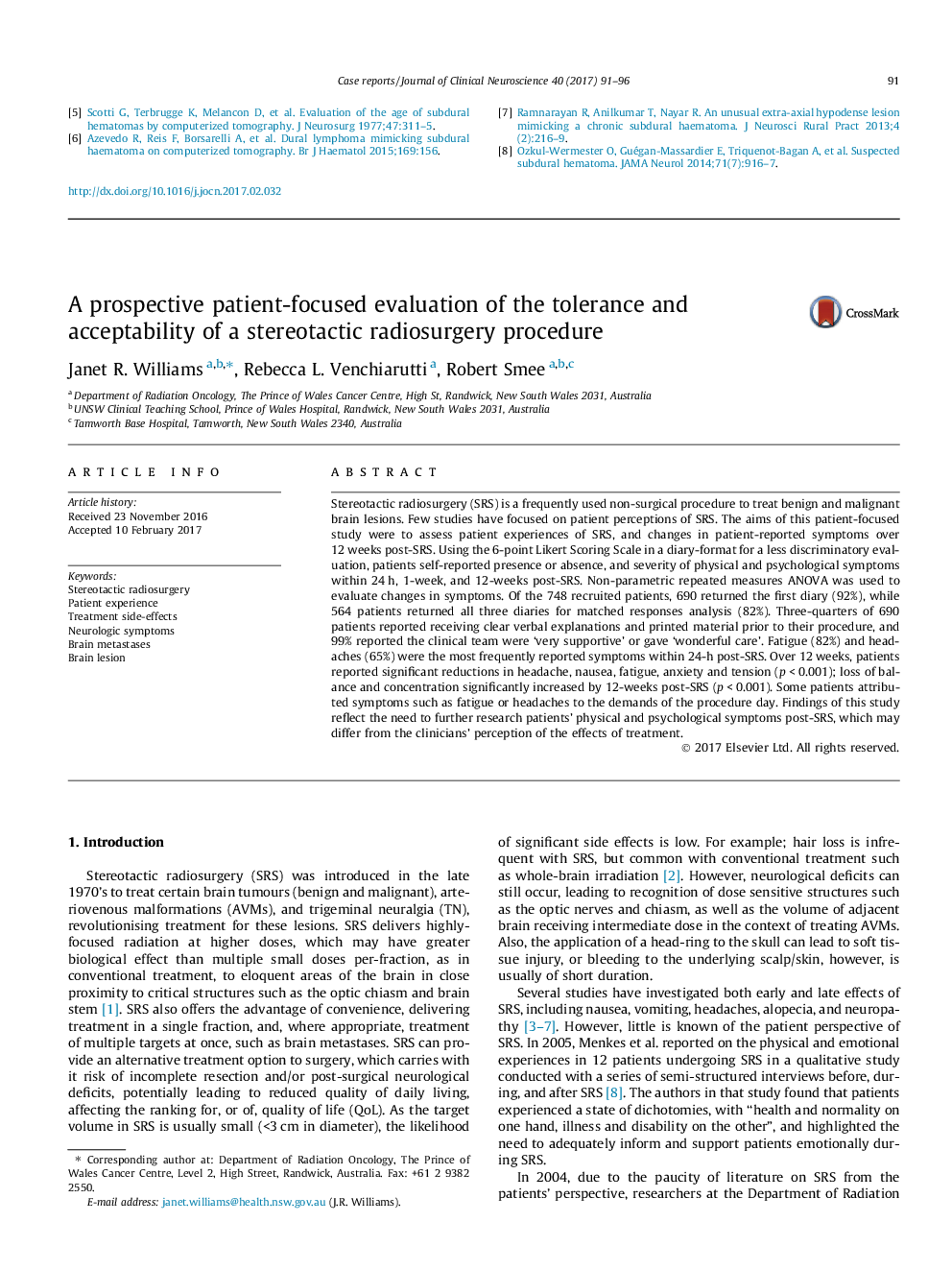| Article ID | Journal | Published Year | Pages | File Type |
|---|---|---|---|---|
| 5629706 | Journal of Clinical Neuroscience | 2017 | 6 Pages |
â¢Using three diaries, 648 patients self-reported symptoms experienced after SRS.â¢Symptoms of nausea, fatigue, anxiety, tension and headache improved over 12 weeks.â¢Many patients still reported experiencing symptoms three months post-SRS.â¢Patient-reported studies are needed to continue to improve service delivery.â¢Symptoms documented by clinicians may differ from those that are patient-reported.
Stereotactic radiosurgery (SRS) is a frequently used non-surgical procedure to treat benign and malignant brain lesions. Few studies have focused on patient perceptions of SRS. The aims of this patient-focused study were to assess patient experiences of SRS, and changes in patient-reported symptoms over 12 weeks post-SRS. Using the 6-point Likert Scoring Scale in a diary-format for a less discriminatory evaluation, patients self-reported presence or absence, and severity of physical and psychological symptoms within 24 h, 1-week, and 12-weeks post-SRS. Non-parametric repeated measures ANOVA was used to evaluate changes in symptoms. Of the 748 recruited patients, 690 returned the first diary (92%), while 564 patients returned all three diaries for matched responses analysis (82%). Three-quarters of 690 patients reported receiving clear verbal explanations and printed material prior to their procedure, and 99% reported the clinical team were 'very supportive' or gave 'wonderful care'. Fatigue (82%) and headaches (65%) were the most frequently reported symptoms within 24-h post-SRS. Over 12 weeks, patients reported significant reductions in headache, nausea, fatigue, anxiety and tension (p < 0.001); loss of balance and concentration significantly increased by 12-weeks post-SRS (p < 0.001). Some patients attributed symptoms such as fatigue or headaches to the demands of the procedure day. Findings of this study reflect the need to further research patients' physical and psychological symptoms post-SRS, which may differ from the clinicians' perception of the effects of treatment.
